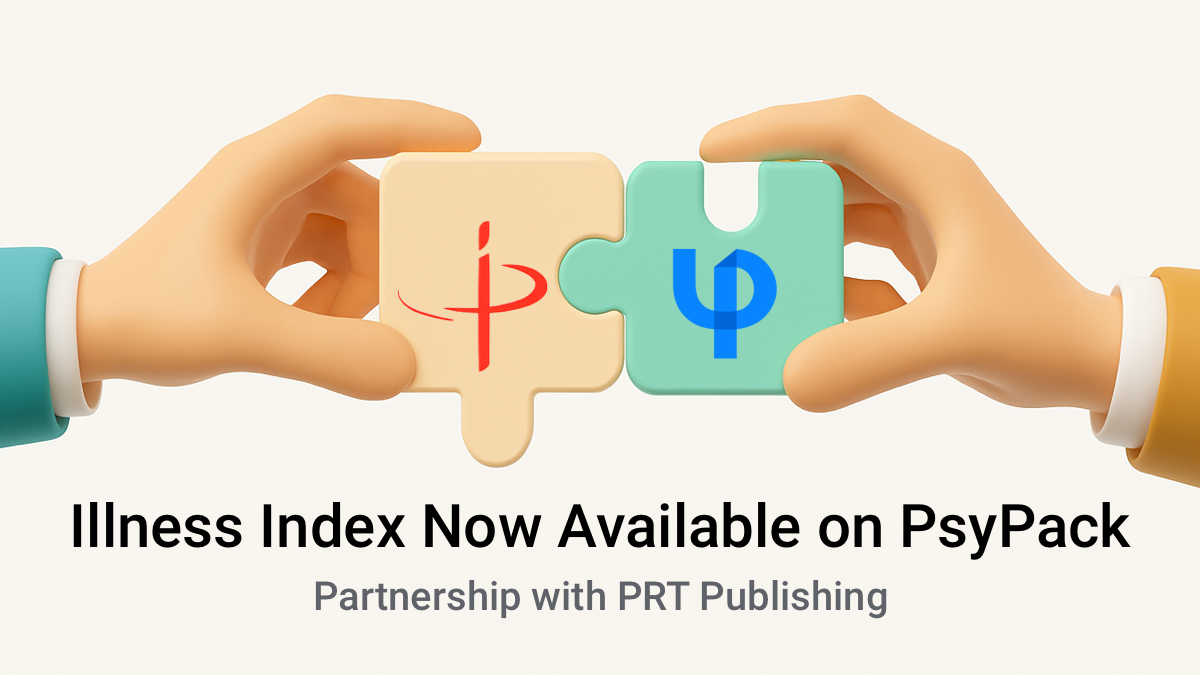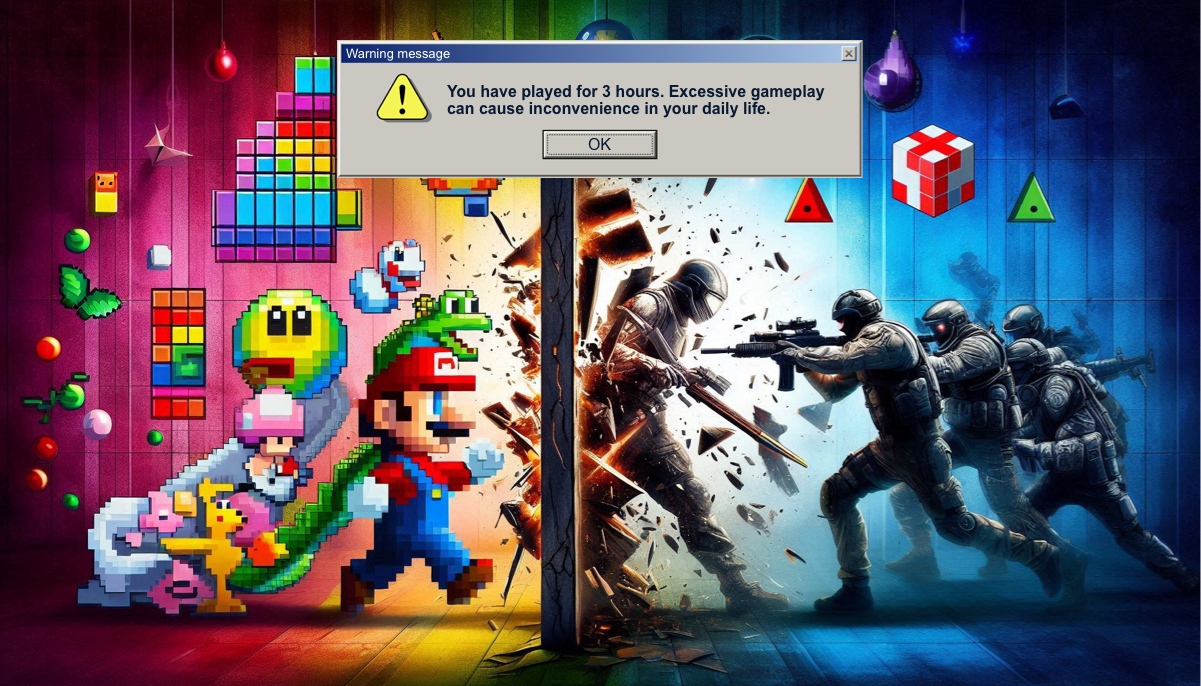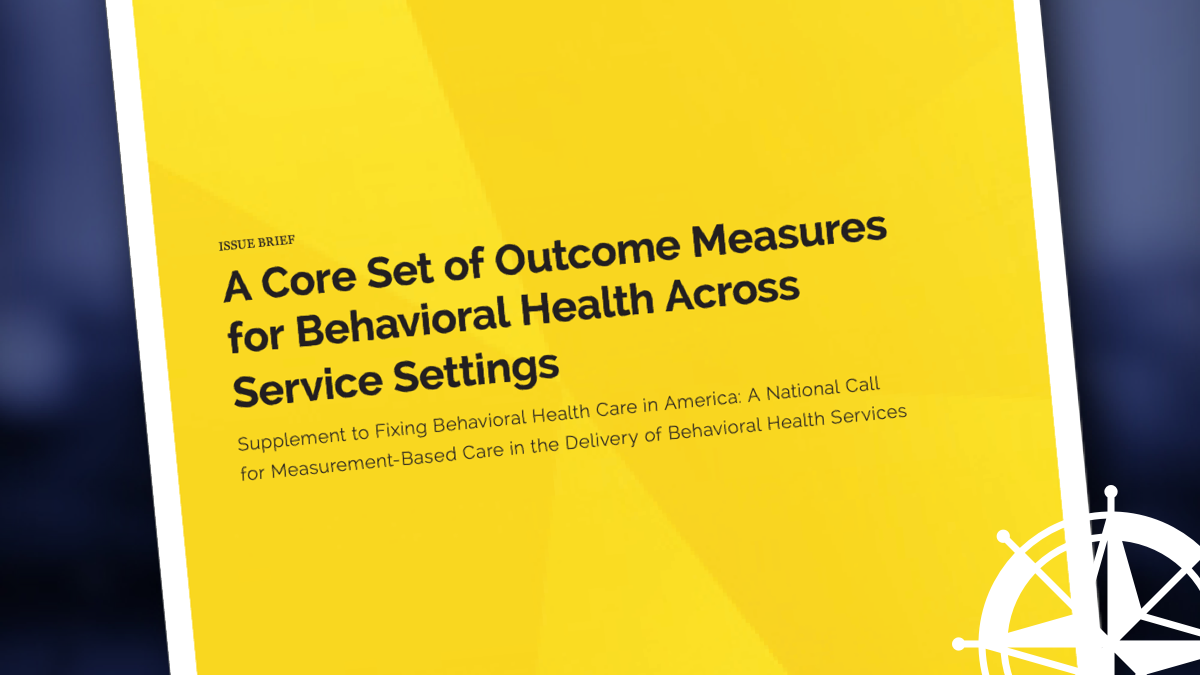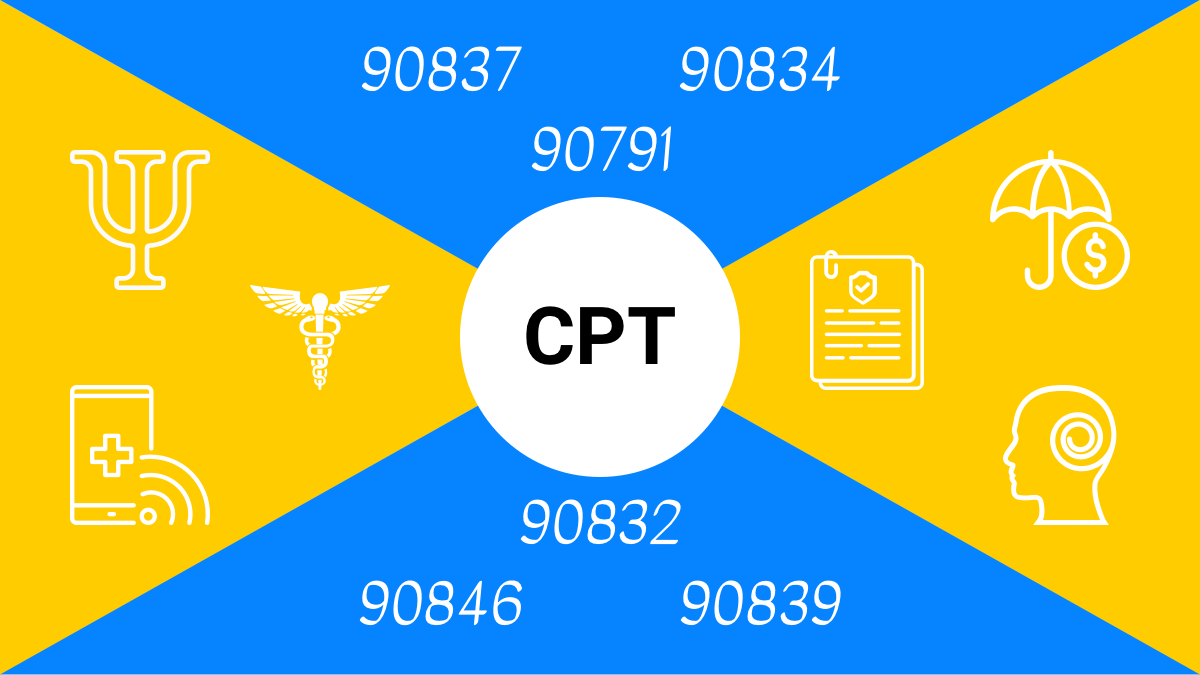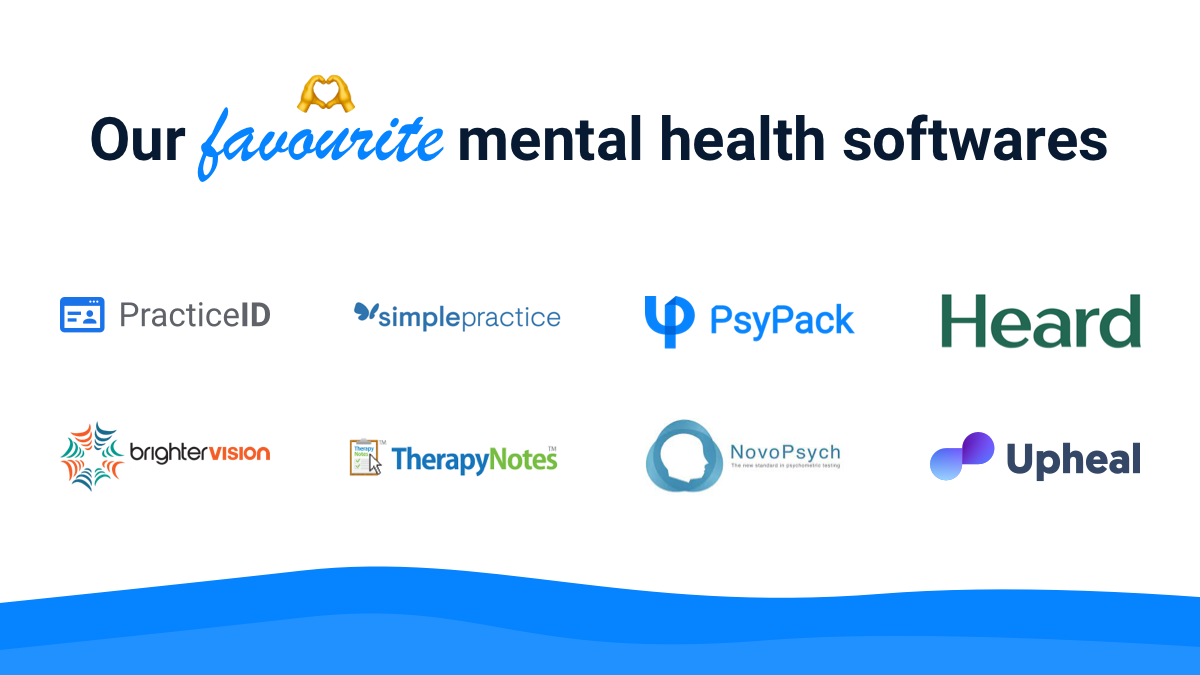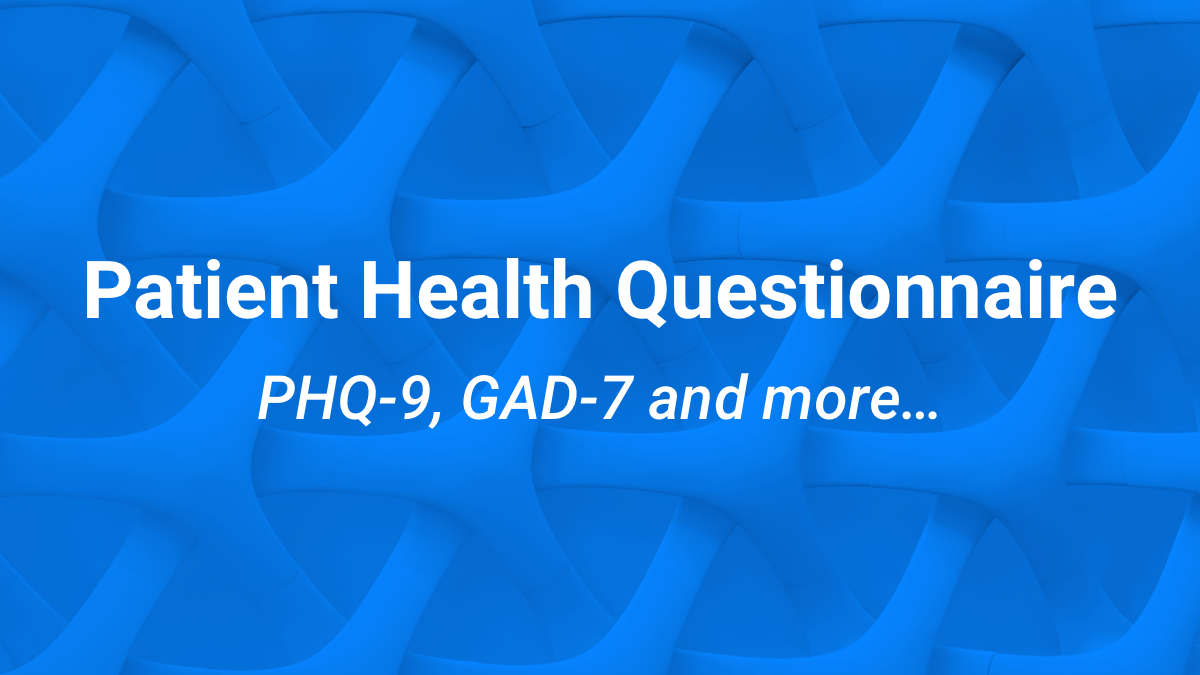The Illness Index Scales: Measuring Health-Related Quality of Life
Announcing Our Partnership with Dr. Glen D. Greenberg & PRT PublishingWe’re thrilled to share that PsyPack has partnered with to bring the family of assessments onto the PsyPack platform.Dr. Greenberg is a board-certified rehabilitation psychologist with nearly four decades of clinical experience, specializing in working with individuals managing medical conditions. Alongside his mentor, Dr. Rolf A. Peterson, he co-developed the Illness Index—a set of questionnaires designed to assess a patient’s and its impact on their quality of life.Unlike many traditional tools, the Illness Index takes a multi-informant approach, capturing perspectives from the patient, their family, and their healthcare providers. This provides a more complete, patient-centered picture of illness burden and functional status—so much so that POI has been described as the The Illness Index has been validated across diverse conditions—ranging from chronic kidney disease to cardiac and pulmonary rehabilitation—and is recognized by leading health organizations such as the American College of Surgeons (ACS) and the Centers for Disease Control and Prevention (CDC).Now, through , healthcare professionals—including psychologists, social workers, physicians, and nurses—can seamlessly administer the Illness Index assessments digitally. Reports are automatically generated with clear, intuitive visuals, making it easier than ever to integrate these valuable insights into clinical care.👉 Learn more about Dr. Greenberg’s work at .The Illness Index MeasuresThe Illness Index family includes four related questionnaires:
These questionnaires are designed for use within a competent clinical or research protocol. They are not intended for standalone diagnostic purposes.Together, the Illness Index Scales measure how a disease, injury, or congenital disorder impacts . By combining perspectives from patients, healthcare providers, and family members—and comparing scores to reference groups—they provide a multi-informant, nuanced profile of illness burden.Why Measure Illness Appraisal?Research shows that how patients perceive their illness has a direct effect on:
Illness perceptions also influence (Drake, Hoppmann & DeLongis, 2022). As Lew & Centron (2021) highlight in dialysis care,
In short: understanding illness appraisal is critical to patient-centered healthcare, bridging the gap between objective medical data and the lived patient experience.Health-Related Quality of Life looks beyond symptoms and diagnoses to understand how a disease, injury, or congenital disorder affects the whole life of a patient—their body, mind, relationships, and daily functioning.The Centers for Disease Control and Prevention (CDC) describes HR-QOL as encompassing “physical and mental health perceptions and their correlates, including health risks and conditions, functional status, social support, and socioeconomic status.” In other words, HR-QOL captures the lived experience of illness.Closely related concepts include:
Importantly, research shows that . For example, in heart failure patients, clinical measures of severity often do not match the patient’s own reported symptom burden. That’s why organizations like the FDA now emphasize the need for validated patient-reported outcome measures—sometimes even making them central to drug approvals.Evidence continues to show the power of HR-QOL appraisal:
By giving patients a voice in describing how illness impacts their lives, HR-QOL assessments create a foundation for patient-centered care—aligning medical treatment with lived experience.The Illness Index QuestionnairesTo make this more practical, let’s go over each of the four Illness Index measures one by one. Each version is designed for a specific respondent (patient, professional, or observer) and serves a unique purpose in capturing how illness impacts quality of life.We’ll start with the Illness Index, the patient-completed version, and then move on to the Professional, Observer, and Treatment Indexes—sharing a quick overview of what they measure, how they’re used digitally on PsyPack, and examples of the results you’ll see (including Track Progress graphs).Illness IndexThe is designed to be completed by patients with a disease, injury, or congenital impairment. It contains 20 items scored on a 5-point Likert scale (20–100 range) and captures the patient’s appraisal of their health-related quality of life (HR-QOL) over the past few days. This timeframe reflects the fact that appraisals can shift with treatment, adjustment to chronic conditions, or as new information about the illness becomes available.In practice, patients are encouraged to anchor their responses to a primary condition. However, when comorbidities are present, their responses may represent the overall illness experience. The tool can be administered in various settings—including one-on-one, group sessions, or with examiner assistance if reading or physical limitations are present—while always respecting privacy and confidentiality.On PsyPack, administration, scoring, and reporting are fully automated. Once a patient completes the Illness Index online, PsyPack instantly generates a visual report with graphs and a clear interpretation of results.📊 Here’s a screenshot of PsyPack Illness Index report:PsyPack also makes it simple to track change over time. With the Track Progress feature, repeated administrations are plotted into a single intuitive graph, helping practitioners and patients see how HR-QOL evolves through treatment or across different phases of illness.📈 Track Progress in action:Illness Index – ProfessionalThe is completed by a healthcare provider directly involved in the patient’s care. This could be a physician, nurse, physician assistant, or—in some cases—a qualified non-medical professional such as a medical psychologist or social worker who knows the patient’s condition well.This version contains the same 20 items as the patient Illness Index but uses wording adapted for a professional perspective. The provider rates the patient’s illness burden based not on general assumptions but on their direct knowledge and professional judgment of how the disorder uniquely affects that individual.For best results, it is recommended that both the Illness Index (Patient) and Illness Index – Professional are completed around the same time—ideally during the same clinical visit. This allows for meaningful comparison between the patient’s perception of their illness and the provider’s appraisal.Such comparisons can reveal important insights:
In PsyPack, the Professional version is scored automatically in the same way as the patient version. Comparing the two reports side by side can help you identify where perceptions match—or where gaps may need to be addressed for better outcomes.📊 Here’s a screenshot of PsyPack Illness Index – Professional report:Illness Index – ObserverThe is completed by a spouse, partner, or—in some cases—an adult child of the patient. It uses the same 20 items as the patient version, but captures how close family members perceive the illness and its impact on daily life.This perspective is especially valuable for:
The Observer questionnaire should ideally be administered around the same time as the patient version, so results can be meaningfully compared. Scoring follows the same procedure as the Illness Index.In PsyPack, the Observer version generates its own report, separate from the patient and professional reports. Practitioners can then view these reports side by side—using both the results and the raw response sheets—to identify areas of concordance or difference across perspectives.📊 Here’s a screenshot of PsyPack Illness Index – Observer report:Treatment IndexThe was designed to capture the patient’s perspective on how treatments themselves impact their health-related quality of life (HR-QOL). While the Illness Index measures the burden of a disease, injury, or congenital condition, the Treatment Index focuses on the side effects and disruptions caused by treatment.This tool is especially useful for:
On the other hand, if treatment is perceived as more disruptive than the illness itself, the risk of noncompliance increases.The format and scoring mirror the Illness Index, with 20 items rated on a 5-point Likert scale. Higher scores indicate greater disruption from treatment. Like the other Illness Index measures, the Treatment Index should be administered and scored by a qualified healthcare professional, and it is most valuable when used repeatedly over the course of care.In PsyPack, the Treatment Index generates its own dedicated digital report with clear, intuitive results. Practitioners can view and share these reports to better understand how treatment is perceived and make informed decisions about care.📊 Here’s a screenshot of PsyPack Treatment Index report:How to Add Illness Index to Your Account on PsyPackTo access Illness Index Assessments, you’ll first need to have a PsyPack account. If you’re not already registered, you can sign up at .Illness Index Assessments are part of on PsyPack. These are special assessments that can be purchased separately on a per-use basis, regardless of the plan you are on. Please note: unused Pay-per-use Assessments automatically expire one year from the date of purchase.Steps to Add Illness Index to Your Plan:
As of this article’s publishing, each Illness Index Assessment is available for purchase in sets of 10 administrations. Once you add the desired assessment, you’ll see a Confirm and Pay button. Click it to complete your payment.After the transaction is successful, the assessments will be added to your plan. From there, you can administer them on PsyPack just like any other assessment, with automatic scoring and reports.ConclusionWe are grateful to Dr. Glen D. Greenberg and Professional Resources and Technologies (PRT Publishing) for partnering with us to make the Illness Index family of questionnaires available on PsyPack. Their pioneering work in measuring perceptions of illness (POI) has shaped the way we understand and address Health-Related Quality of Life in clinical care.By digitizing these tools on PsyPack, we’re helping practitioners, researchers, and healthcare teams access powerful assessments that are easier to administer, score, and track—ensuring patient voices are heard and valued at every stage of care.This collaboration reflects our broader vision: to keep you ahead by continuously expanding PsyPack with validated tools from leading authors and publishers worldwide. And this is just the beginning—we’re building more partnerships to bring you the latest, most impactful assessments so that your practice stays at the forefront of patient-centered care.👉 If you’re an author or publisher interested in collaborating, learn more on our .

